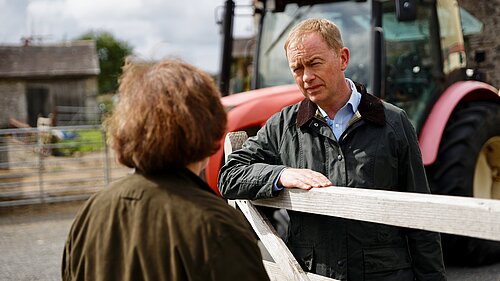Ministers must back Cumbrian farmers to help tackle soaring food prices

On the floor of the House of Commons last night, Cumbrian MP Tim Farron asked the DEFRA Secretary, Mark Spencer, to support local farmers to grow more food to tackle rising food prices in the shops.
From today, UK businesses will be forced to pay an extra charge for food imported in from the European Union.
According to DEFRA, small imports of products such as fish, salami, sausage, cheese and yoghurt will be subject to fees of up to £145.
The Cold Chain Federation said the new charges would hit food prices.
Speaking during an Urgent Question in Parliament on Checks on Goods Entering the UK, Tim said: “Those of us from rural communities, particularly those like mine in Cumbria that had to live through the horror of the foot and mouth outbreak in 2001, know how vital it is to have biosecurity at our borders - but intelligently applied, so that we do not damage supply chains and have excessive red tape.
“Does this issue not shine a spotlight on the fact that we are now, sadly, increasingly reliant on food imports? Britain produces only 60% of the food we eat.
“Does that not remind us that the Government’s agricultural payments scheme, which actively disincentivises the production of food on good-quality, productive agricultural land, is extremely foolish and should be reversed if we are serious about our security as a country?”
Responding, the Secretary of State for Environment, Food, and Rural Affairs, Mark Spencer said: “I am familiar with the beauty of the honourable gentleman’s constituency; as he knows, I was there on Saturday with the shadow Minister.
“He gives the figures for what we import in total, but for the food we can produce we are at 72%.
“The Prime Minister has also recognised that challenge, and we will introduce a food security index so that we can monitor this issue, to make sure that the Government’s policies do drive farmers to increase their productivity and their production.
“I have full confidence in the ability of our farmers to continue to produce top-quality British food, to continue to expand their productivity and to keep the country well fed.”
